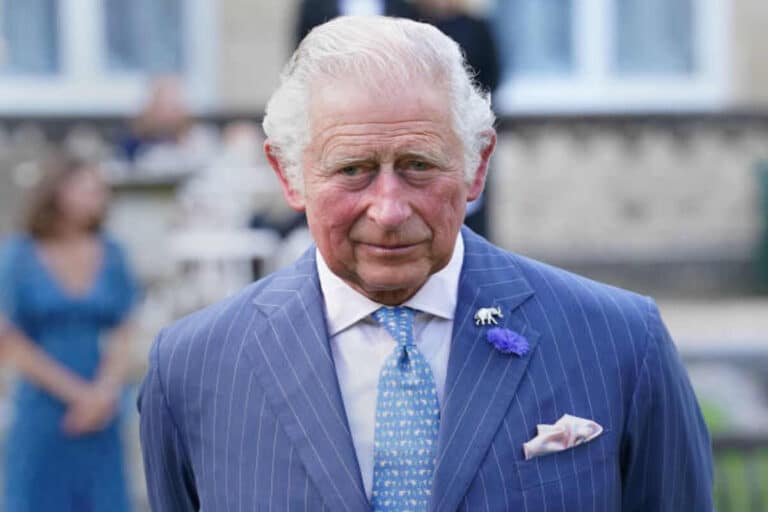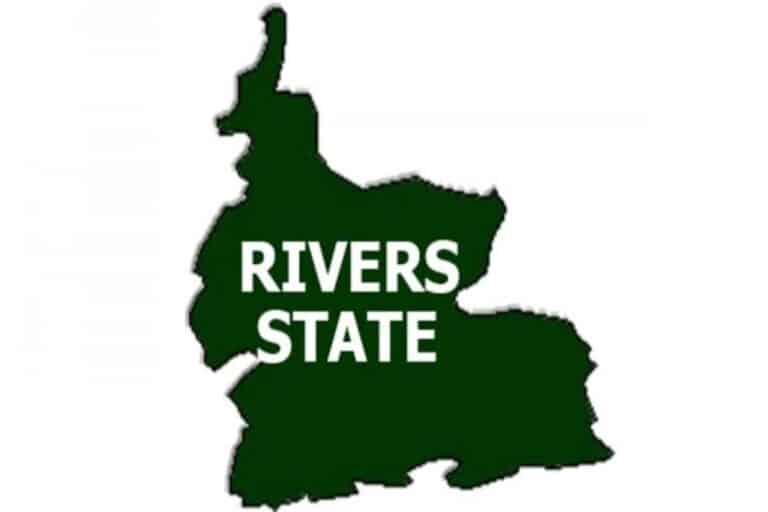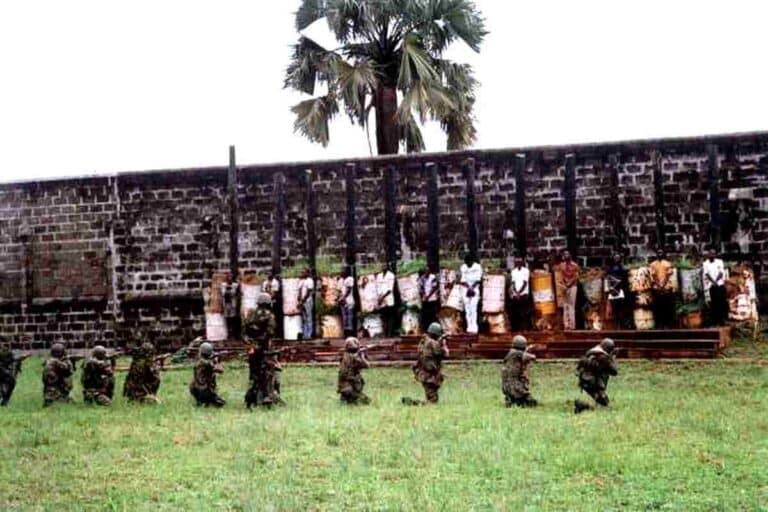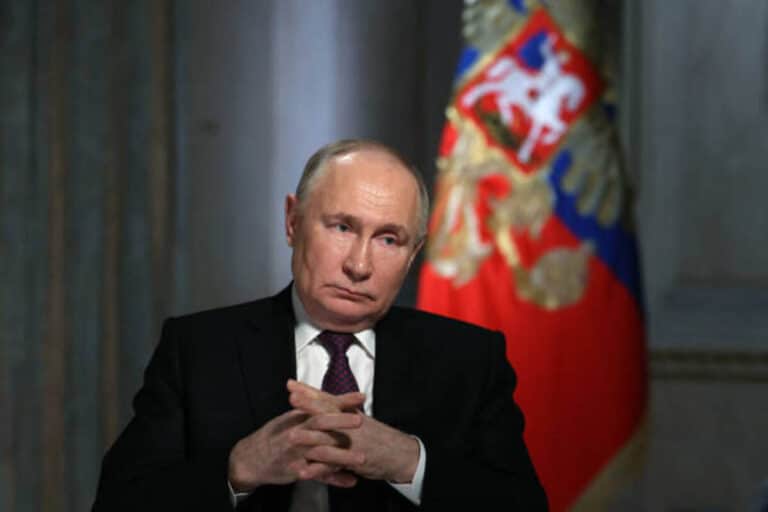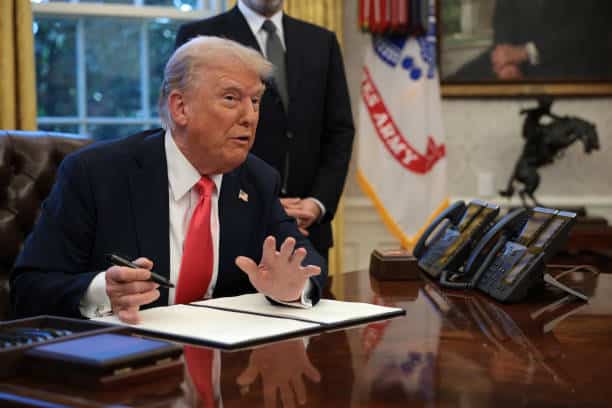

U.S. President Donald Trump signs an executive order in the Oval Office at the White House. (Photo by Alex Wong/Getty Images)
(EPICSTORIAN) — WASHINGTON— Former President Donald Trump announced a fast-tracked pathway to U.S. citizenship for South African farmers, following an executive order halting federal aid to the country.
The move, unveiled Friday on Truth Social, follows Trump’s repeated criticism of South Africa’s Expropriation Act, which he and billionaire Elon Musk claim discriminates against white landowners.
U.S. Aid Halted Over Human Rights Allegations
Trump’s executive order, signed on February 7, accused South African authorities of human rights violations linked to the land redistribution policy. In 2023, Washington provided approximately $440 million in aid to South Africa, primarily for health programs.
President Cyril Ramaphosa, in response, stated that most of the funding was allocated to HIV and AIDS relief efforts.
“The United States will not support a government that violates basic human rights,” Trump declared. “Farmers and their families who seek safety will be welcomed into America.”
The Expropriation Act and Its Impact
Implemented in January, the Expropriation Act aims to address historical land ownership imbalances from the apartheid era. More than 80% of South Africa’s population is Black, yet Black citizens own less than 4% of private farmland.
The law permits land redistribution, including expropriation without compensation, if deemed “just, equitable, and in the public interest.”
Ramaphosa defended the policy, arguing that it fosters fair land access and corrects systemic inequalities. However, critics, including Musk, have condemned it as discriminatory. “This is openly racist ownership legislation,” Musk wrote in a social media post.
Trump and Musk’s Criticism Intensifies
Trump, who previously called for an investigation into South African farmland seizures in 2018, renewed his condemnation of the law. “They are confiscating FARMS and LANDS and MUCH WORSE,” he wrote, without elaborating.
Musk, a South African native, has also accused the government of enabling “genocide of white people.” His comments reference the controversial anti-apartheid song “Kill the Boer,” which some interpret as incitement, though historians argue it symbolizes resistance rather than violence.
Ramaphosa Rejects Trump’s Claims of Discrimination Against South African Farmers
The South African government dismissed Trump’s accusations, describing them as misleading and failing to acknowledge the country’s colonial and apartheid history. Officials maintain that the land reform policy is legally sound and essential for economic transformation.
Trade Relations at Risk
South Africa is in negotiations for a new trade agreement with Washington amid concerns that Trump could withdraw from the African Growth and Opportunity Act (AGOA).
The agreement, benefiting 32 African nations, provides duty-free access to U.S. markets. While officials expect its renewal, contingency trade deals are under discussion.
Trump’s executive order and the offer of expedited citizenship signal a deepening rift between the two nations, with broader geopolitical and economic consequences.



